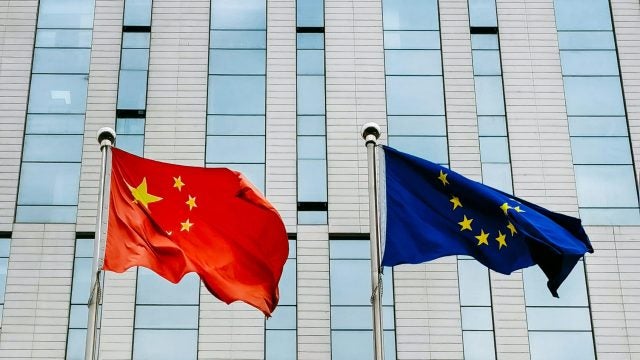
Title: Cultural Understanding as a Driver of Success in Global Labor Markets
Foreign employers have the potential to influence cultural norms and improve female employment outcomes in regions with historically low female labor force participation (FLFP), such as the Middle East. However, attracting and retaining local talent requires more than offering competitive salaries—it demands a nuanced understanding of culturally relevant workplace amenities and values. By learning from successful local industry peers, global companies can strengthen their position through strategies such as optimizing local recruitment networks, promoting women into leadership roles, and addressing misperceptions that foreign firms are unsuitable workplaces.
Introduction
Policymakers and scholars have often highlighted how multinational corporations (MNCs) are uniquely positioned to advance women’s empowerment in developing economies, thanks to their so-called “outsider’s advantage.” As outsiders, foreign employers may be able to identify and engage underutilized talent, such as local women, who might otherwise be overlooked due to prevailing norms. However, more research is needed to understand the specific conditions under which MNCs can effectively leverage this advantage and when a more culturally sensitive approach is necessary to recruit and retain local talent.
Integrating recent findings on MNCs’ role in accelerating women’s workforce participation and leadership in the Middle East can help researchers and practitioners better understand how global firms might simultaneously strengthen local labor markets and enhance their long-term profitability. Despite often coming from countries with higher female labor force participation (FLFP), foreign employers may miss key economic opportunities when they fail to engage local youth and female talent. By tapping into local networks, correcting misperceptions about foreign firms, and promoting women into leadership roles, companies can bolster both their reputation and their bottom line.
Some policymakers have highlighted the potential for MNCs to engage underused female talent in countries with low FLFP. In many instances, these firms have improved employment outcomes for women by offering jobs, raising wages, and introducing benefits such as enhanced workplace safety. Yet, evidence also suggests that MNCs do not always fulfill this potential. Research over the past decade reveals that even in regions where foreign firms are expected to lead by example, their impact on women’s employment often falls short of their transformative promise.
While women’s labor force participation remains significantly lower than men’s worldwide, some regions with historically wide gender gaps have seen substantial progress. In the Middle East, for instance, Saudi Arabia has more than doubled women’s workforce participation in under a decade. Since 2016, this transformation has emerged as a significant case study, offering strategic insights into how global companies can contribute to the broader movement toward gender-integrated workplaces, unlocking women’s potential and driving inclusive economic growth.
Foreign employers have the capacity to shape cultural norms and improve outcomes for women in countries with traditionally low FLFP. Doing so, however, requires thoughtful engagement with the local context. Beyond competitive salaries, global firms must consider culturally relevant amenities and learn from successful local competitors by building local networks, addressing outdated perceptions, and advancing women into leadership roles.
Optimizing Local Networks
A recent study found that kinship ties—shared middle and last names and nationalities within the same company—are common among female managers in Gulf Cooperation Council countries, where FLFP has historically been low. These ties range from a conservative 5 percent of executives in Qatar to approximately 30 percent in Kuwait and appear even more prevalent in male-dominated sectors such as trade and retail. In contexts where traditional talent pipelines for women are limited, kinship connections with business leaders can serve as entry points into the “glass web,” a term used to describe the social networks embedded in executive hierarchies in firms.
While much research has focused on how women advance from entry-level positions, examples from the Middle East highlight how familial networks can offer an alternative route into senior leadership, bypassing conventional bottom-up trajectories. These networks persist despite formal prohibitions on nepotism, suggesting that, in some cases, they function as culturally adaptive mechanisms in settings where professional relationships between unrelated men and women remain constrained. Compared to standard referrals, kin-based networks may provide a socially acceptable and effective path for women’s workforce entry and advancement.
Moreover, companies with more women in leadership roles also tend to exhibit higher overall female employment and narrower gender wage gaps. In this sense, kinship-based leadership pathways may create ripple effects that benefit women across organizational levels, including those from less privileged backgrounds. While foreign companies may be cautious about engaging in such networks for fear of violating anti-nepotism policies, thoughtfully navigating trusted kinship or community systems could increase the likelihood of strong, successful job matches, especially for female candidates.
Correcting Misperceptions
Reducing misperceptions among MNCs about host countries is essential for fostering greater openness to recruiting local talent. A 2016 study found that Emiratis often felt viewed by foreign employers as less ideal candidates than foreign workers. At the same time, local workers may see foreign companies as unwelcoming or incompatible with cultural values, particularly when these firms are perceived to disregard local religious or historical traditions. These mutual misunderstandings can hinder effective recruitment and retention, especially of women.
To bridge these gaps, MNCs may need to reassess workplace policies, such as those related to sexual harassment, parental leave, transportation, and childcare, to ensure they reflect local expectations and norms. Community engagement strategies, including recruitment visits or awareness campaigns, can help dispel outdated assumptions. This kind of outreach is particularly important for attracting and supporting women in the workforce.
Proactive strategies to correct misperceptions have shown tangible results. For example, when men are informed about widespread community support for women’s employment, they are more likely to support their wives’ job search. In Kuwait, research has shown that men and women raised in the same cultural environment can still hold divergent views about prevailing gender norms, highlighting the persistence of misinformation within communities.
Ongoing research is exploring how correcting misperceived social norms within organizations can influence a range of outcomes, from increased uptake of paternity leave to more inclusive hiring practices, including for refugees. Further research is needed to understand how these mismatches in perception continue to shape labor market dynamics, on both the supply and demand sides, when stereotypes remain unaddressed.
Elevating Local Women into Leadership Positions
Recent research shows that female managers serve as key role models and clear indicators of a company’s cultural transformation toward greater gender integration. In developing economies, clients increasingly expect foreign companies to create lasting value by establishing sustainable practices that incorporate local labor, including women. Local female leaders not only inspire future recruits but also signal a company’s genuine commitment to inclusion and cultural sensitivity. When these leaders represent their firms at career fairs, conduct interviews, and engage with clients, their presence distinguishes the company from competitors lacking such human assets.
However, challenges often arise when companies accustomed to certain business norms operate in environments with different cultural expectations. A study on foreign firms in Saudi Arabia found that many struggled to provide non-wage amenities aligned with the needs of local women. Notably, firms from countries with similar cultural or religious values—or comparable FLFP rates—were more likely to meet these expectations. In Saudi Arabia, for instance, sought-after amenities included flexible schedules, support for transportation and childcare, and the presence of women in management.
One effective strategy for navigating these dynamics is to learn from successful local competitors. Emulating locally appropriate practices—such as offering flexible hours, providing family-supportive benefits, or establishing mentorship programs—can help companies better support female employees while improving retention and morale. These practices can also benefit young men as they balance early career demands with new family responsibilities.
Conclusion
Global companies can gain a comparative advantage by cultivating a deeper understanding of local cultural values and offering amenities that resonate with their workforce. While foreign firms have long benefited from productivity and technological specialization, success in today’s global marketplace increasingly depends on meaningful engagement with local labor markets. One way to demonstrate this commitment is by optimizing local recruitment networks—seeking referrals from current employees and creating feedback channels to better address community-specific needs.
In addition, companies can work to challenge outdated stereotypes about their cultural awareness. Information campaigns, publicizing culturally relevant workplace benefits, and sharing testimonials from local employees can help reshape perceptions and attract talent that might otherwise be hesitant to apply.
Strategic support for female employees, particularly in leadership positions and high-visibility projects, can also yield long-term dividends. When companies provide opportunities for local women and youth to lead, contribute to client-facing work, and take on promotable tasks, they create success stories that in turn reinforce broader workplace inclusion. These efforts have already played a crucial role in the sharp rise in FLFP across parts of the Middle East in recent years.
Although many foreign firms come from countries with higher female workforce participation, they often miss valuable opportunities by overlooking local youth and female talent. Companies that continue to rely solely on traditional expatriate networks risk falling behind. By strengthening connections with local communities, updating perceptions of foreign firms, and promoting women into leadership, global companies can position themselves more competitively.
While these initiatives may seem challenging, they can begin with simple actions such as hosting listening sessions with local employees and acting on their feedback. As global economies become more interconnected, the ability to transform cultural differences into strategic strengths will be increasingly vital. Companies that invest in cultural understanding and inclusive practices not only contribute to regional development but also enhance their long-term performance. A genuine commitment to inclusion can become a rising tide that lifts all boats.
…
Dr. Alessandra L. González is an Assistant Research Professor in the Department of Economics at Duke University. Her research examines how culture shapes gender inequality, with a focus on economic outcomes such as labor force participation, occupational segregation, and executive leadership in organizations.
Image Credit: UN Women, CC BY-NC-ND 2.0, via Flickr
Recommended Articles

This article contends that South Africa’s 2025 G20 presidency presents a critical opening to shape governance of critical mineral supply chains, essential for renewable energy, digital economies, and national…

Germany’s economy is being throttled by a more competitive China that has usurped its previous manufacturing dominance in many industries. In response, Germany has doubled down on the China bet…

In 2021, the European Union (EU) attempted to assert itself in the Indo-Pacific arena to increase its geopolitical relevance by releasing an ambitious and multifaceted Indo-Pacific Strategy. However, findings from…